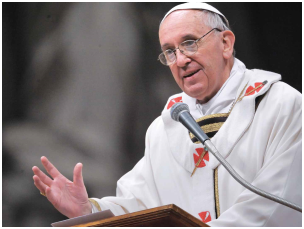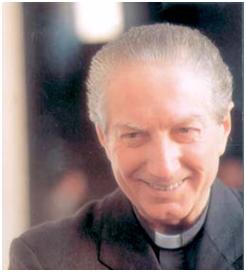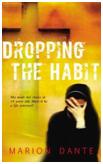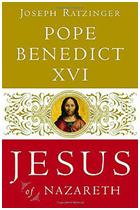Thursday 6th November

Today the battle between the Belfast baker and gay rights rumbles on.
I am not too sure about what annoys me more about this story. First there is the assertion by so many that this baker was standing up for Christian values. Next is the entrapment by the gay rights organisation – that cake itself was not a wedding cake, but a vehicle for a political slogan.
First the Christian values. Jesus was remarkably quiet about gay marriage, given that so many Christians feel that making a stand on this issue is a testimony of faith. What does Jesus say? Love your neighbour as yourself – does that not encompass "accept your neighbour for who they are"? Jesus also taught "Do not condemn; and you will not be condemned. Pardon and you will be pardoned". Jesus' harshest words were often reserved for those who thought they understood the law and the scriptures "you load men with intolerable burdens and will not lift a finger to lighten the load" (Luke 11:46). Be careful, all of you who preach against the Gay community, for you may be called to judgement yourselves. Our faith as Christians does not encompass demonising others, but rather we care called to embrace and accept all for who they are. As Christians, we are called to bring the Good News of Jesus to others, not to enforce a moral code that can be tenuously drawn out from a few verses in Scripture. It would not be against our faith to bake and decorate a cake for a gay couple who wish to celebrate their marriage. Neither would it be breaking faith for a Christian Registrar to officiate at a ceremony for a gay couple. It would be against our faith to condemn whole groups of people to living in misery just because they are who they are.
 Second point. The cake. It is within the gift of the state to determine what relationships can be determined as marriage. For instance, in the UK first cousins can marry. But Canon Law in the Catholic Church decrees that first cousins cannot marry. In the UK, divorced parties can remarry, in Ireland this is a comparatively recent phenomenon. And so it is with gay marriage. It is the state which decides on this matter. In Northern Ireland, the State has decreed that the only marriage recognised is between one man and one woman. To change the mind of the state is a political act. And so, the slogan "Support Gay Marriage" serves a political end, to change the mind of the state and to enable gay marriage. Should a cake bearing a political slogan, for a campaigning event be treated, in the same way as a real wedding cake or other celebratory cake that would celebrate the union between a gay couple. The gay activist was asking the baker to produce a cake with a political slogan he did not agree with. Suppose the slogan was "Support Joining the Euro" and the baker was a well known UKIP supporter. Would anyone be surprised that the bake would turn down this commission?
Second point. The cake. It is within the gift of the state to determine what relationships can be determined as marriage. For instance, in the UK first cousins can marry. But Canon Law in the Catholic Church decrees that first cousins cannot marry. In the UK, divorced parties can remarry, in Ireland this is a comparatively recent phenomenon. And so it is with gay marriage. It is the state which decides on this matter. In Northern Ireland, the State has decreed that the only marriage recognised is between one man and one woman. To change the mind of the state is a political act. And so, the slogan "Support Gay Marriage" serves a political end, to change the mind of the state and to enable gay marriage. Should a cake bearing a political slogan, for a campaigning event be treated, in the same way as a real wedding cake or other celebratory cake that would celebrate the union between a gay couple. The gay activist was asking the baker to produce a cake with a political slogan he did not agree with. Suppose the slogan was "Support Joining the Euro" and the baker was a well known UKIP supporter. Would anyone be surprised that the bake would turn down this commission?

 And where would Jesus be in all this? What would he say, he who turned on those trying to trap him saying “Alas for you lawyers also! You load men with intolerable burdens, and will not lift a finger to lighten the load” (Luke 11:46 – from the Gospel read on Wednesday 15th October 2014). What would Jesus say to those wishing enforce “Church teaching” in all its rigidity? Such teaching that denounces all gay relationships, bars those who are divorced and remarried from the life of the Church, or prevents couples resorting to IVF when this is the only hope of having a healthy child and demands total celibacy from a 100% male clergy? Would a modern day Gospel have Jesus dining at the home of Zechariah and his partner? Would the marriage at Cana be between a man and a woman who have both been divorced?
And where would Jesus be in all this? What would he say, he who turned on those trying to trap him saying “Alas for you lawyers also! You load men with intolerable burdens, and will not lift a finger to lighten the load” (Luke 11:46 – from the Gospel read on Wednesday 15th October 2014). What would Jesus say to those wishing enforce “Church teaching” in all its rigidity? Such teaching that denounces all gay relationships, bars those who are divorced and remarried from the life of the Church, or prevents couples resorting to IVF when this is the only hope of having a healthy child and demands total celibacy from a 100% male clergy? Would a modern day Gospel have Jesus dining at the home of Zechariah and his partner? Would the marriage at Cana be between a man and a woman who have both been divorced?
 “Have you read…” began the conversation and a frisson of excitement briefly took form as we discussed the merits (or otherwise) of a book written by a former Salesian nun. This was our annual get together for the class of 1970 of the former St John Bosco’s Convent Grammar School, Chertsey. It was not often that our former Alma Mater makes it into a published work. Would we recognise any of the people mentioned, would we even find ourselves in the pages of the book, and would it shed light on the lives of the women who educated us? And what scandals would be unveiled along the way?
“Have you read…” began the conversation and a frisson of excitement briefly took form as we discussed the merits (or otherwise) of a book written by a former Salesian nun. This was our annual get together for the class of 1970 of the former St John Bosco’s Convent Grammar School, Chertsey. It was not often that our former Alma Mater makes it into a published work. Would we recognise any of the people mentioned, would we even find ourselves in the pages of the book, and would it shed light on the lives of the women who educated us? And what scandals would be unveiled along the way? What are the dividing lines between Catholic Christians and secularists? Eco (author of Name of the Rose) and Cardinal Martini (in the Catholic corner) discuss four issues: abortion, why women cannot be ordained, hope and the future of mankind and the basis of ethics. Perhaps not the burning issues that many today would think need to be answered, but this book was written in the context of the impending millennium where some predicted this would bring in the end of civilisation as we know it. Today the burning issues would be child abuse, homosexuality, Darwinism or even the environment. Perhaps another age (not too long ago) would have included the just war or nuclear weapons.
What are the dividing lines between Catholic Christians and secularists? Eco (author of Name of the Rose) and Cardinal Martini (in the Catholic corner) discuss four issues: abortion, why women cannot be ordained, hope and the future of mankind and the basis of ethics. Perhaps not the burning issues that many today would think need to be answered, but this book was written in the context of the impending millennium where some predicted this would bring in the end of civilisation as we know it. Today the burning issues would be child abuse, homosexuality, Darwinism or even the environment. Perhaps another age (not too long ago) would have included the just war or nuclear weapons.